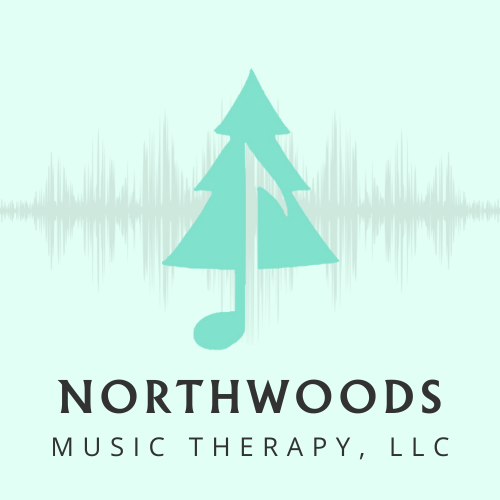FAQs
-
It’s not as new as many may think! Although the idea of music in healing has been around since ancient times, the current discipline as we know it began after World War I and World War II when community musicians went to Veterans hospitals around the country to play for the thousands of veterans suffering both physical and emotional trauma from the wars. The patients' notable physical and emotional responses to music led the doctors and nurses to request the hiring of musicians by the hospitals. It was soon evident that the hospital musicians needed some prior training before entering the facility and so the demand grew for a college curriculum. The first music therapy degree program in the world was founded at Michigan State University in 1944. The American Music Therapy Association was founded in 1998 as a union of the National Association for Music Therapy and the American Association for Music therapy.
-
We serve individuals of all ages and abilities, including but not limited to:
Children and teens with developmental delays, autism, or sensory needs
Adults managing mental health challenges such as anxiety, depression, PTSD
Individuals recovering from stroke or brain injury
Older adults with Alzheimers or other forms of dementia
People in hospice or palliative care programs
Caregivers, veterans, and those navigating life transition
-
Not at all! No musical skills are required to participate in or benefit from music therapy. Our sessions are accessible and welcoming to everyone.
You don’t need to be a musician. You just need to be you. Let’s make progress one note at a time.
-
There are many funding options available, including:
CLTS Waiver (Children's Long-Term Support Program)
Adult Long-Term Care Programs (IRIS, Inclusa and others)
Private pay with flexible sliding scale options
School district or IEP-based services
Hospice care coverage through interdisciplinary teams
Veterans' benefits and community grants
Private insurance (coverage varies- ask us for support navigating this)
Were happy to guide families through funding applications and paperwork
-
Each session is personalized for the individual’s unique goals, but may include:
Singing or vocalizing
Instrument playing (drums, piano, guitar, bells, etc.)
Movement to music
Songwriting and improvisation
Relaxation and guided imagery
Listening and discussing music
Sessions typically last 45-50 minutes and may be held in-home, at schools, community sites, or online via telehealth
-
Music therapy is focused on functional and therapeutic goals, not performance or music education. While we use music to reach developmental, emotional, physical, or cognitive milestones, we don’t require musical training or aim to teach music skills (though they may grow naturally through the process!)
-
It’s simple:
Contact us via our website or phone to schedule a free consultation.
We’ll discuss desired outcomes and potential funding sources with you before we schedule our first session.
Next, we’ll complete a music therapy assessment in 2 visits to learn about goals, strengths, and needs.
We create an individualized treatment plan and provide recommendations based on our findings.
